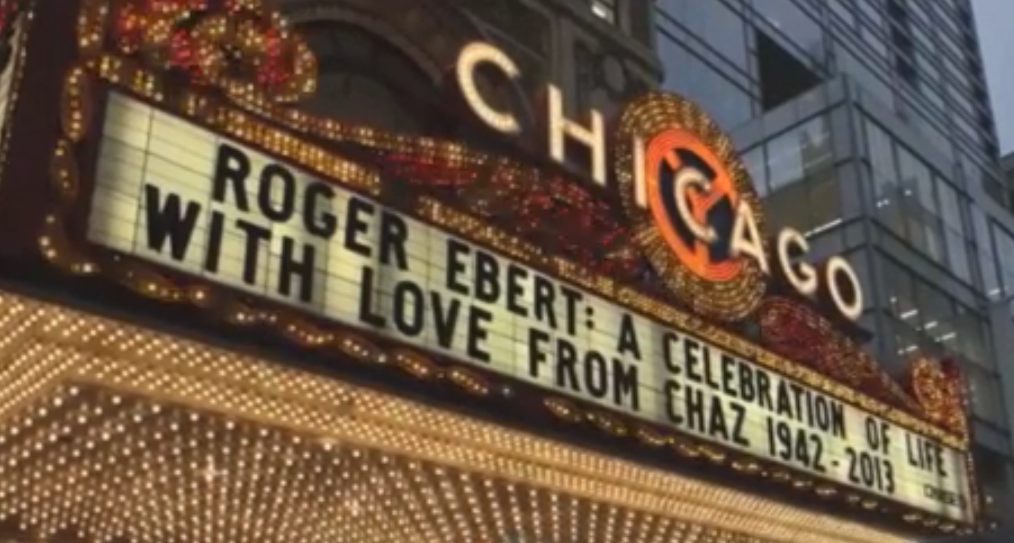Before watching the premier of “Life Itself” at the Sundance Film Festival, I would not have guessed how much the documentary about my dear Roger would affect me. Steve James‘ film, adapted from Roger’s memoir of the same name, was, in a word, magnificent, and it left me emotionally drained.
The experience was bittersweet, mostly because Roger wasn’t there to share it with me. Still, I found great joy in a movie that showed a side of him the public rarely sees: his life as a family man and loving grandfather. One scene that made me tear up was my granddaughter Raven talking about how much Roger taught her about movies, books and life. He was such an important part of his grandchildren’s lives, and the movie was a painful reminder to me that he is no longer here for them.
As I reflect on my week at Sundance, I am happy that I waited to see the completed film with the Sundance audience and gratified that my son, Jay, daughter, Sonia, and Raven were at my side. My family is a source of strength to me, and they too are still mourning Roger’s death, so the experience was a sort of catharsis for us.

Throughout the screening, I felt swaddled in love and compassion—not just from my family but from the entire audience. Around me I could hear people sobbing one minute and bursting with laughter the next as Roger’s life, warts and all, unfolded before us. Our hearts filled and our chests rose and fell in unison.
When Roger and I made the decision to allow Kartemquin Films unfettered access, we knew there were aspects of our daily lives that wouldn’t be pretty to show. But that’s the way Roger wanted it. In fact, one thing I was not on board with Steve filming was Roger’s throat being suctioned, a raw and intimate process he underwent several times a day. So Roger had him shoot it when I wasn’t around. In the movie, it’s apparent how pleased Roger was with himself for having pulled it off, giving a thumbs-up to the camera. That made me chuckle.
I think that Roger would have been pleased that Steve shows both sides of the effect his TV show with Gene Siskel had on the movie going public, with Richard Corliss arguing against the use of thumbs-up as a way to measure approval of a film, and independent filmmakers like Gregory Nava and Ava Duvernay and Werner Herzog so poignantly relating how Roger’s support made a difference in their careers.

Roger told me to tell Steve that he wanted the movie to show Roger Ebert the man, not the icon. But I admit that I loved all aspects of him. I put my husband on a pedestal because I knew how kind and generous and enlightened he was. Because of that, some parts of the movie were bracing for me to see, especially the discussions of Roger’s wild bachelor days. I had to remind myself that he was, after all, a living breathing human being—a man with many interests outside of movies, including women. And it was the sum of those life experiences that made Roger the man I came to know and a transcendent husband.
I would like to clear up one thing that some reviewers saw as a discrepancy between the film and what Roger’s memoir says about how we met. As the film points out, Roger first laid eyes on me at an AA meeting. But we didn’t actually meet until later, when Ann Landers introduced us in a restaurant—a scene Roger described in his book. The latter was an elaborate detail edited out of the final version of the film. It’s important for people to realize that neither Roger’s memoir nor the movie claim to be a full accounting of Roger’s life. His memoir was episodic and was never meant to be a complete autobiography of his richly lived life.
I also want to thank all those who shared this experience with us by signing up through Indiegogo to watch the film simultaneously at home. That is what Roger would have been most excited about: not that a film was made about him, but that through this technology he can still connect with you.
One of the things this documentary did wonderfully, for instance, was to capture what it was like to be on the journey with Roger as he battled cancer. Roger wasn’t afraid to die. In fact, he showed us how to do it, with grace and dignity—just as he showed us how to live, with kindness and compassion. Roger may have taken a “leave of presence,” but the stream of who he was and is continues.
I’m not saying Roger was a saint. He had flaws like any human. But those are part of what shaped him. And they are part of why people connected to him the way they did—and still do. Thank you, Steve James, for capturing this brilliantly, for managing to reveal Roger Ebert the man without wobbling the pedestal I put him on.













